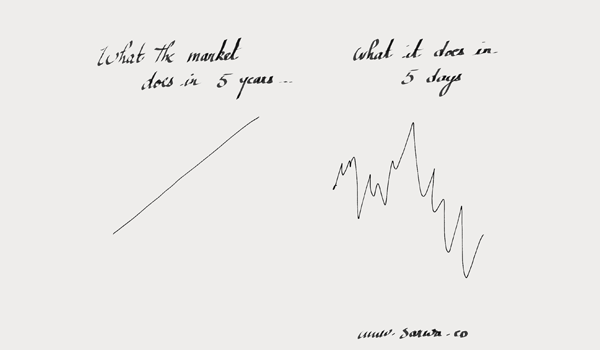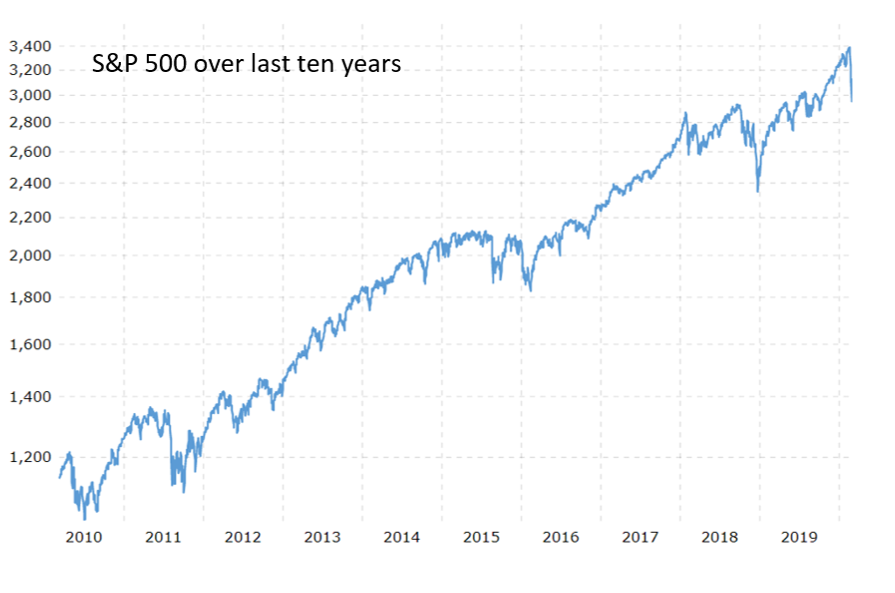
Trying to predict the unknown economic implications of coronavirus? Freaked out about the recent market volatility? It is tempting to try to do something, and fast. However all investors need to take a really deep breath.
In spite of all the publicity and non-stop cable news coverage on the spread of coronavirus, nobody knows exactly why the market has reacted as it did over the last few weeks. Nobody
You are saving for the future, perhaps even up until retirement, and the reason you hold stocks in your portfolio is
Just take a moment to look at the chart below:
Doesn’t that look good? Now you can see that if you had been invested in the stock market for the past decade that 180% gain would already be yours in your portfolio!
Maybe this is the end of the long bull market. In fact no one can really tell whether the current market volatility will represent the beginning of a bear market, the onset of a very short-term crash, a healthy correction to be followed by another rally to new market highs or possibly the start of a stagnant period in which the market will be very quiet and uninspiring for most investors for a while.
Perhaps stocks will drop a further 10% or even 20%. Whatever the scenario, the market will certainly bottom out and start rising again and it is extremely likely that you will achieve attractive gains over the next 5 to 10 years.
The plain fact is that no one can predict the future with 100% certainty Who was even talking about coronavirus two months ago? We have covered some of these issues in our video on the behavioural challenges to successful investment.
However, if you have cash saved for a buying opportunity then the appropriate strategy could well be to start investing some of that money gradually now and continue to invest more money if and when the market declines further.
You will then have achieved the advantage of cost averaging and when the market eventually starts to climb again you will have bought stocks when they were relatively much cheaper. Discuss this method of enhancing your long-term gains further with your Sarwa advisor and set up a regular saving plan.
Don’t pay much attention as well to all the talking heads on the television. Most of these are professional traders trying to time the market and trade very short term. They are absolutely not concerned with where the stocks will be positioned several years from now.
The best way to gain access to the markets over the long term is to invest in a diversified basket of stocks through an exchange traded funds (ETFs) . The horizon is a long way off. Stocks are for the long haul and there are several decades between graduation and retirement. Or possibly one decade between college graduation and the arrival off a new baby.
Even in fact if you are on the cusp of retirement, keep in mind that the big idea here is to live at least 20 more years, which is usually plenty of time for stocks to bounce back from even an extended decline in the stock market.
So good luck with your investing programme. And stick to a regular and successful long-term investing plan in order to fulfill all your future aspirations!
David Gibson-Moore
Ready to invest in your future?

